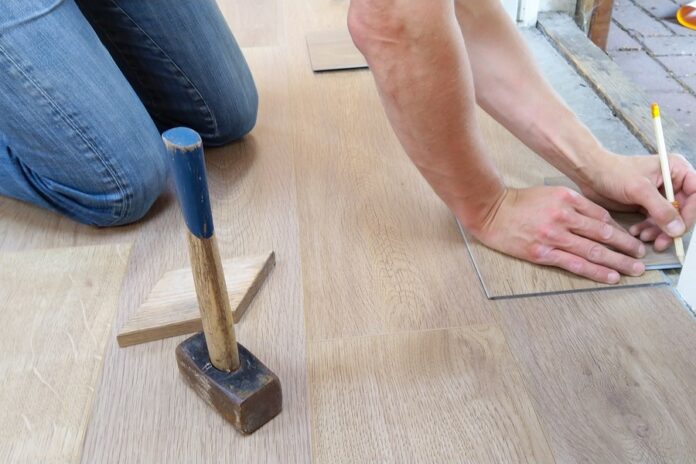Being a homeowner means having a personal responsibility regarding your home’s upkeep and maintenance. DIY repairs can be indispensable for this. Why? Well, first of all, they save money but they also save time and make you more self-sustainable. After all, even if the plumber would be there in 20 minutes, on your own, it may take you 5 minutes to solve the issue. This way, you don’t have to call anyone, hope that they’ll arrive in time or even postpone the call until it’s more convenient for you to receive the servicemen. Still, this is not always the safest course of action. Here are several safety tips for repairing your home yourself.
- Watch out for chemicals
When cleaning rusty or dirty parts, chances are that you will have to resort to the use of chemicals. If this is the case, there are two steps of precaution that you will have to take. First, you need to wear some PPE. A mask, some glasses and a mask are some of your options but wearing protective clothing (in a case of a drip), isn’t a bad idea either. Apart from this, you need to check the ventilation of an area. You could open a window, turn on the ventilation (if it’s present in the room) and more. Overall, your options are quite numerous.
- Sharp tools
There are several rules to follow when using sharp tools. The first one is to be extra careful of what you’re doing and take it easy. Second, don’t try to rush things by using multiple tools at a time. Keep in mind that handling some tools may disturb your balance, which will make a tripping risk much more likely. Ideally, make sure that your immediate surroundings are clear before you proceed. If there are other people around you, ask them to move or caution them before you start swinging.
- Take care of your tools
Speaking of tools, there are several additional rules that you need to follow. First of all, you need to properly take care of them. A damaged or rusty tool is not just less effective, it’s more dangerous for you than its well-maintained counterpart. Second, you need to make sure you have all the right tools. If not, you will either try to handle the task with an improvised tool (which rarely ends well) or use a different tool for the job (which might be even worse). You must stock up on everything you might need in time.
- Working with electricity
When handling an electrical problem in your home, you need to be extra careful. Sure, being grounded and using proper tools is helpful but these things are incredibly tricky. A risk of fire, electrocution or both of these things simultaneously is always present. In other words, this is one of the DIY repairs projects that you would do your best to outright avoid. Just look for emergency electricians in your area and give them a call. If they prove themselves, have their number on speed dial.
- Working on a platform
Regardless if you’re working on ladders indoors or outside, working on great heights is just as dangerous. For starts, you need to choose the ladder that is the right size, otherwise, you’ll have to improvise and compromise your safety. Second, you need to make sure that the ladder is properly supported. Third, ridiculous as it may sound, you need to learn how to climb the ladder properly. One of the ways to elevate the safety of this project, in general, would be to ask someone to spot you.
- Have a first aid kit
If you’re the type of person to handle your household repairs, you must have a first aid kit somewhere at hand. Now, we’re not suggesting that it should be out on the table every time you’re replacing a bulb but keeping it somewhere you can reach it in a matter of a single minute would be a great idea. At the very least, you need to know where it is so that you don’t go rummaging around the place, looking for materials that you need right away. Even if you just need a band-aid, it’s better to have it right away.
In conclusion
Keep in mind that the single most important factor here is knowing how to recognize scenarios in which you need to call a professional. This type of early diagnostical insight is pivotal for your safety and long-term health of your appliances. In a way, it’s what being a homeowner is all about. Moreover, there’s nothing wrong with calling a professional even for minor malfunctions but this way you get a more independent way of handling things. There’s also the satisfaction of fixing stuff in your household with your own two hands.





















